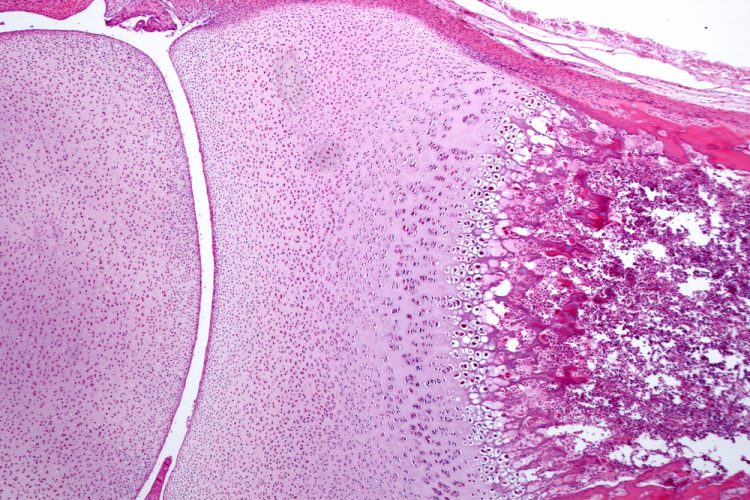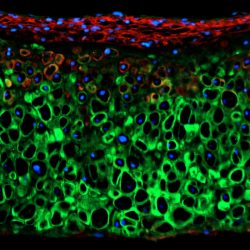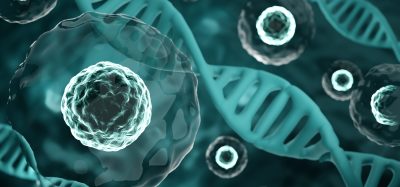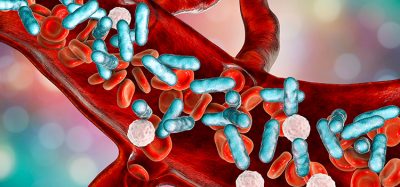Cartilage growth gene TRPV4 shows promise for joint repair therapy
Posted: 26 August 2021 | Anna Begley (Drug Target Review) | No comments yet
The discovery that the TRPV4 gene regulates cartilage growth could lead to treatments for osteoarthritis and other cartilage diseases.


A team at Cytex Therapeutics and Washington University, US, have demonstrated that the transient receptor potential vanilloid 4 (TRPV4) gene can help regulate cartilage and bone formation. According to the researchers, this pivotal discovery could lead to more effective treatments for osteoarthritis, as well as hereditary disorders affecting cartilage development.
“We wanted to learn whether TRPV4 is specifically expressed as a marker of chondrogenesis and also if it plays a functional role in regulating chondrogenesis in induced pluripotent stem cells (iPSC)-derived chondrocytes – the cells responsible for cartilage formation,” explained corresponding author Farshid Guilak.
The researchers used iPSCs, which can be generated directly from adult cells, to create a modelling system for studying TRPV4. They then used a fluorescent indicator to monitor chondrogenic differentiation from murine (mouse) iPSCs. Results showed that over the 21-day chondrogenesis process, TRPV4 expression mirrored that of classic chondrogenic markers produced naturally by the body.


Chondrogenesis of iPSC micromasses following activation of TRPV4 [labeled for collagen I (red), collagen II (green), and cell nuclei (blue)]
[credit: AlphaMed Press].
“Furthermore, daily activation of TRPV4 significantly increased cartilage matrix production,” Guilak added. “These findings tell us that, as we suspected, TRPV4 serves as both a marker and a regulator of iPSC chondrogenesis. We believe that iPSC chondrogenesis could be an excellent model system for studying TRPV4’s role in cartilage development and diseases. An improved understanding of how this occurs promises to provide new insights into the development of new therapeutic approaches for cartilage-related disorders.”
In addition, Guilak stated that the findings could lead to a new way of optimising stem cell differentiation when bioengineering cartilage designed for knee replacements and other joint repairs.
“Cartilage regeneration is a vastly needed therapy for the ageing population but has been difficult to accomplish and is one of the “final frontiers” in tissue repair,” commented Jan Nolta, Editor-in-Chief of the journal STEM CELLS in which the study was published. “The excellent studies done by Dr Guilak and team will pave the way for improved studies to treat osteoarthritis and other cartilage diseases.”
Related topics
Biomarkers, Drug Targets, Gene Therapy, Genetic Analysis, Genomics, In Vivo, Regenerative Medicine, Stem Cells, Therapeutics
Related conditions
Osteoarthritis
Related organisations
Cytex Therapeutics, Washington University
Related people
Dr Jan Nolta, Farshid Guilak








